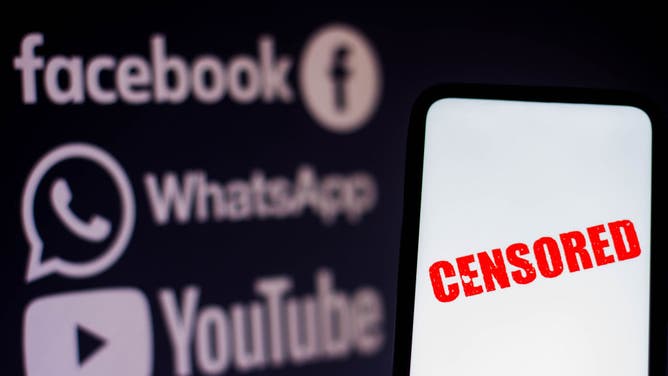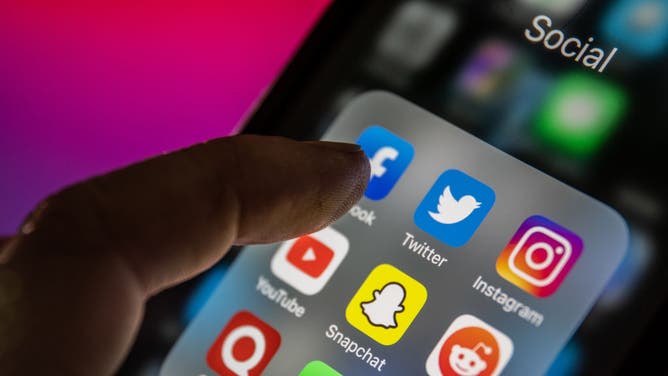Journalists Are Now The Champions Of Censorship In America: Mary Katharine Ham
As in most professions, journalism offers an array of professional associations aligning with one’s enthusiasms or identity. There is the White House Press Corps, the Asian American Journalists Association, Investigative Reporters and Editors, and the National Press Club, among many others.
But perhaps the most active professional association is an informal one with nonetheless thriving chapters at almost all American news outlets. And that is the Journalists for Government Censorship of Speech. As it is a decentralized organization unified solely by its dedication to suppressing icky viewpoints. It is sometimes known by other names, such as Journalists Against Debate, Journalists for Canceling All the Right People, or the noble Journalists Fighting Misinformation.
At the New York Times, it has been known as the Journalists For Preventing U.S. Senators From Publishing Op-Eds and the Journalists Who Are So Upset With J.K. Rowling They Demand the Paper Stop Reporting Facts of the Gender Debate.
This passion for shutting down speech instead of producing countering speech is the opposite of what one should expect from the people who are among the First Amendment’s most passionate practitioners. Certainly, 20 years ago, there was agreement in the industry that the apocryphal Voltaire quote was something of a truism: “I may not agree with what you have to say, but I will defend to the death your right to say it.”
These days, young journalists would probably guess it to be the rantings of some dangerous, right-wing insurrectionist (and then write a piece about how someone in the federal government should be empowered to remove this violent rhetoric).
Every time the industry has a chance to prove me wrong on this assessment, it steadfastly refuses to do so, and July 4th was no exception.

Even social networks are censoring speech, though they'd like you to think they're not. (Photo Illustration by Rafael Henrique/SOPA Images/LightRocket via Getty Images).
Censorship And Journalists Are Now Regularly Intertwined
When a federal judge offered a preliminary injunction in the case of Missouri v. Biden, barring the federal government from contacting social media platforms to encourage the removal of constitutionally protected speech, the response was not one of joy that Big Brother would be temporarily prevented from stifling the “uninhibited marketplace of ideas,” as Terry Doughty, a judge on the U.S. District Court for the Western District of Louisiana wrote.
Instead, there was gnashing of teeth over the idea that some ideas the press doesn’t like might see the light of day.
The Washington Post sighed that the ruling could “undo years of efforts to enhance coordination between the government and social media companies, scare quoting “protected speech,” and referring to government pressure and jawboning around which the case revolves as mere “coordination and communication.”
The New York Times bemoaned the “potential to upend decades of legal norms that have governed speech online.” It noted with foreboding that “its impact could force government officials, including law enforcement agencies, to refrain from notifying the platforms about troublesome content.” Police might have to stay their hands instead of trying to shut up American citizens who produce “troublesome content?” Heaven forfend.
An MSNBC panel sought shelter in the judge’s exceptions for reporting national security concerns and criminal behavior, promptly imagining how they could put all their pet peeves under that umbrella thereby securing a future in which the government could continue to protect them from wrong-think.
Free Speech...Not So Much
Mike Barnicle found the judges’ limitations on government limitation of free speech to be a betrayal of the First Amendment while Matt Welch of Reason Magazine did a valiant 13 minutes of CNN informing his fellow journalist panelists that, in fact, government censorship of ideas, even ones they think are bad, is bad.
This despite the fact that this case dealt solely with the government’s attempts to restrict political speech about Hunter Biden’s laptop, COVID-19 vaccine, lockdown, and mask efficacy, the COVID-19 lab leak theory, 2020 election integrity, negative takes on the Biden-era economy, and even a parody Twitter account spoofing a Biden family member, which was removed within 45 mins of a White House request.
And these were not mere suggestions to social media to remove material. Though the line between communication and bullying might be hard to draw at times, in this case, the federal government made it very clear what it was doing, as Bret Stephens noted in the New York Times:
On July 20, 2021 , MSNBC morning host Mika Brzezinski asked Kate Bedingfield, who was then the White House communications director, whether the White House would amend Section 230 of the Communications Decency Act so that social media companies would be “open to lawsuits” for hosting Covid misinformation. Bedingfield replied, “We’re reviewing that, and certainly they should be held accountable.” Social media companies soon began to remove the pages and accounts of the so-called Disinformation Dozen, referring to notorious vaccine skeptics.
On Oct. 29, 2021, Surgeon General Vivek Murthy tweeted that “we must demand Facebook and the rest of the social media ecosystem take responsibility for stopping health misinformation on their platforms.” That day, according to Doughty’s ruling, Facebook requested that the government provide a “federal health contract” to determine “what content would be censored on Facebook’s platforms.”

Facebook requested that the government provide a “federal health contract” to determine “what content would be censored on Facebook’s platforms.”. (Photo by Matt Cardy/Getty Images).
This is hardly the first emergence of the journalistic consensus against speech. A newsroom revolt became a sort of parallel uprising to Black Lives Matter protests in American cities during 2020. New York Times journalists said printing Sen. Tom Cotton’s ideas would “jeopardize our journalists’ ability to work safely and effectively,” and longtime editor James Bennett was ousted for this sin. Philadelphia Inquirer journalists wrote an open letter about how “carelessness (in a headline word choice) puts our lives at risks,” and got their editor ousted, too.
Those Inquirer journalists concluded their letter to management with “This is not the start of a conversation.” Journalists Against Conversation is just one more of the many professional associations dedicated to narrowing the speech of fellow citizens.